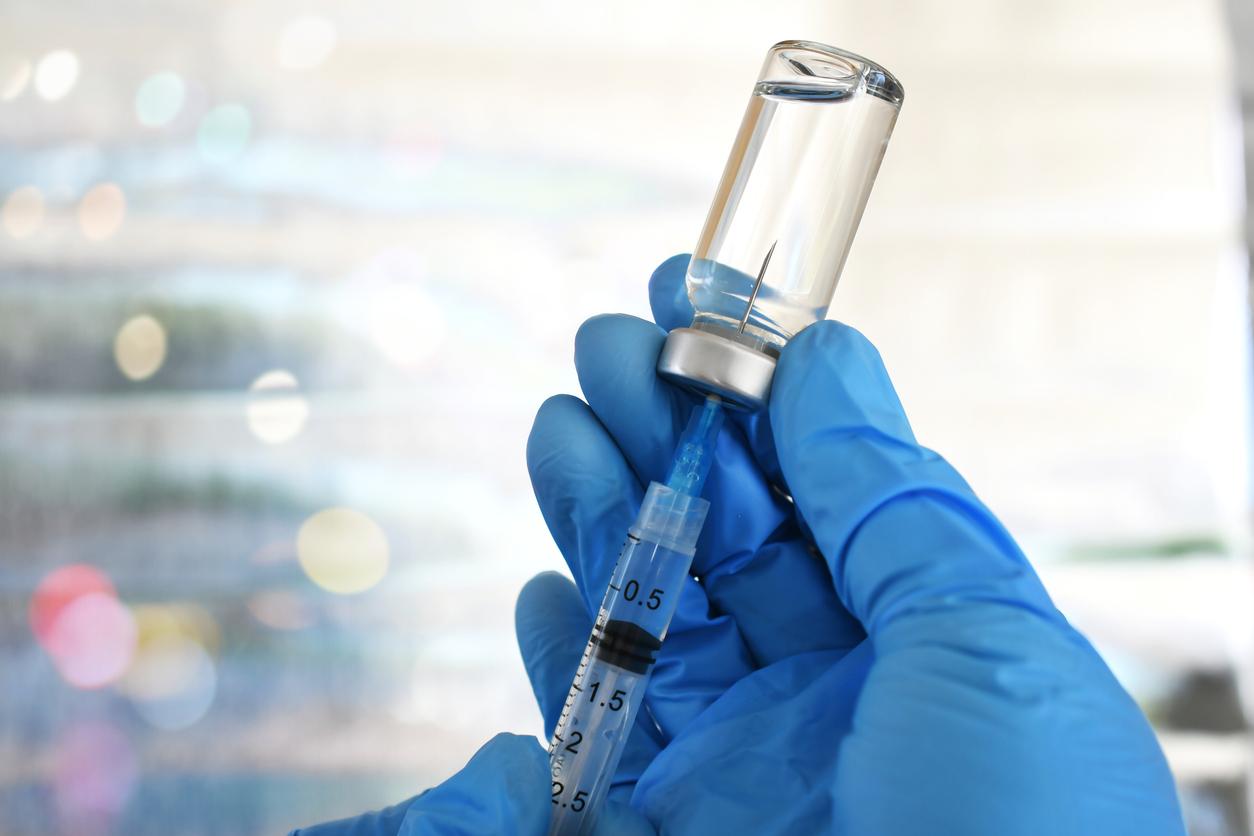Since late April, an infectious diseases specialist at Stanford University and his colleagues have been volunteering their time on a project they hope will help educate the public, and combat misinformation, about the safety and efficacy vaccines.
The project, led by Jake Scott, MD, is a spreadsheet of all the randomized controlled trials (RCTs) that have ever been conducted for licensed vaccines. The idea, hatched on the social media site X, was prompted by responses to an old video of current Department of Health and Human Services Secretary Robert F. Kennedy Jr., in which he claims that none of vaccines mandated for US children has ever been tested in preclinical studies against a placebo. In one of the responses, infectious disease physician Brad Spellberg, MD, suggested a crowd-sourced effort to identify and post all of the RCTs in which vaccines have been tested against a placebo.
That night Scott, a self-proclaimed "spreadsheet geek" who has previously collaborated with Spellberg, began building a spreadsheet using Google Sheets, creating criteria for inclusion, and seeding it with seven vaccine RCTs. Each entry has columns for the name of the vaccine, the date the RCT was published, which populations were studied, how many people were involved in the study and, importantly, the types of placebo or active comparator that were used for the control group.
By the next morning, there were 20 vaccine RCTs on the spreadsheet. By May 5, the list had grown to 100. The spreadsheet now stands at more than 270 RCTs and continues to grow. Scott and his colleagues, who aim to eventually publish a peer-reviewed paper on the project in a medical journal, thoroughly review each entry before inclusion and provide links to the RCTs on PubMed.
"I think we're kind of looking at the tip of the iceberg," Scott told CIDRAP News. "There's going to be, I would say, easily 400-plus, maybe 500-plus trials with millions and millions of participants."
CIDRAP News recently spoke with Scott about the project and what he's learned from it. The following excerpts from the conversation have been edited for length and clarity.
CIDRAP News: One of the claims Secretary Kennedy has made, and he said this on May 14th when he was testifying before Congress and in a recent Fox News interview, was that the only vaccine that has been tested in placebo-controlled trials is the COVID vaccine. And he's made variations on that claim in other venues. Based on your review of the RCTs that you've compiled, is that true?
Jake Scott: It's unequivocally, demonstrably, measurably false. I've looked through this extensively and it's been reported on and I've posted about this…because my biggest fear really in life is being misleading or giving inaccurate information. So I've poured through this, I've looked at the studies, and there are many, many more placebo-controlled vaccine trials. It's just such a misleading claim. Essentially every childhood vaccine has been tested in placebo-controlled trials of some sort.
But it's important to be specific, and I think nuances kind of matter. So when it comes to doing a randomized control trial, if you want to see how well something works, you compare it to a group of people who didn't get that thing. And then you look at the outcomes, right? And you compare the outcomes. RFK Jr. has been quoted as saying the gold standard should be no intervention—you take 100,000 kids, you give them the vaccine, and then you compare it to 100,000 kids who didn't get that vaccine. Well, that is biologically inert, because you're not giving them anything. But then they're not going to be protected if that vaccine does work. There have been trials that have used no intervention. That's his gold standard. And there have been childhood vaccine studies that have compared vaccines to no interventions.
Essentially every childhood vaccine has been tested in placebo-controlled trials of some sort.
There have also been trials that have compared the vaccine to saline placebo. But saline is not the only placebo. There are other kinds of inert salts and stuff, like calcium carbonate, etc. Then you have aluminum adjuvants, which are considered placebo in the sense that they don't trigger an immune response to that particular thing. They basically nudge the immune system up to provide a better-quality immune response to the antigen, which is the piece of protein or whatever that you want the immune system to target. So when it comes to those definitions, yes, there have been many placebo-controlled vaccine trials.
What's really interesting, in my opinion, is how could you talk about childhood vaccine trials only being placebo-controlled during COVID when you're leaving out the polio trial? The Salk Vaccine Field Trial of 1954 was one of the largest prospective medical trials ever. It was massive. There were about 200,000 kids in 1954 who got saline, and there were 200,000 kids who got vaccine. That was a saline, placebo-controlled trial, and it was massive.
When I did a thorough analysis [of the spreadsheet] a few days ago, we had 274 total trials—164 of those were placebo controlled, 133 were inert placebo controlled. So about half of all the RCTs that we've seen have been inert placebo-controlled trials.
CIDRAP News: One of the other claims that that Secretary Kennedy has made is that nobody knows the risk profile of these vaccines, specifically the recommended childhood vaccines. How do you respond to that claim?
Jake Scott: It is patently false. That's just one of the biggest lies about vaccines that there is because we absolutely do know the safety profiles. Vaccines have been the most thoroughly vetted of all medicines. Not only are the safety profiles being studied during the trials, they're also being monitored after licensure like nothing else. I mean, we have so much more safety data on vaccines than we do on supplements, which a lot of people have no issue taking.

Our data sheet looks at not only efficacy, but it also lists safety outcomes. And you know, initially, we thought 'that's going to take too much time, let's just focus on efficacy.' We're a team of eight volunteers, you know, and I want to make that clear to the public—we don't get paid. We're not working for pharma. I've never taken a cent from pharma. But Brad [Spellberg] and I were talking and we realized that the question here in most people's minds isn't whether these vaccines are effective and how effective they are, it's are they safe. So we felt obligated to include safety outcome data. It adds a lot more time to our work. And what's crazy is that last I checked, when there were 274 trials, more than 90% of those included safety outcome data.
So the trials themselves—the vast majority of them—do report safety data. But of course those trials are going to be limited because you can't study a vaccine and compare it to a control group in a million people, or a hundred million people, you know? That would take forever. These trials are typically hundreds [or] thousands of people, sometimes tens of thousands of people, sometimes a hundred thousand plus people like with the polio vaccine. So safety outcome data is going to be limited because of the size…and if there's a very rare safety issue or adverse event that's associated or potentially associated with a vaccine, it's not going to be detected in a trial. It's going to be detected after the trial.
...we have so much more safety data on vaccines than we do on supplements, which a lot of people have no issue taking.
That's why we have these other layers. Post-licensure safety monitoring layers. That's why we have VAERSs (the Vaccine Adverse Event Reporting System) and VSD (the Vaccine Safety Datalink) and Prism (Post-licensure Rapid Immunization Safety Monitoring) and international safety databases. And this is not just the CDC, it's EMA (European Medicines Agency), it's agencies around the world. It's the World Health Organization. And that's how we detect these signals and that's how we act on them.
For example, the RotaShield vaccine—and we've included the Rotashield trial because we’re not cherry-picking—was withdrawn because there was a safety signal detected after the trial was completed that showed that there was a higher rate of intussusception, which is when the bowel kind of folds in on itself. Other rotavirus vaccines were subsequently developed that have not been shown to have higher incidences of that.
The Johnson and Johnson COVID vaccine is a perfect example. During the trial, there wasn't a safety signal detected. Afterwards, and pretty quickly afterwards, there were higher rates of blood clots that were noted. That was detected in these post-licensure safety databases. And then it was withdrawn. So post-licensure safety monitoring did exactly what we needed it to do.
CIDRAP News: There's obviously a lot of concern about vaccine recommendations in this country going forward under Secretary Kennedy, but is there anything good that can come from this, and from you and other infectious disease experts getting out there and sharing the data on vaccines with the public?
Jake Scott: I'm totally an optimist. I'm a glass-half-full kind of person. And I also think it's important to recognize or try to understand why we are here. There's no doubt in my mind that some of the reason why we're here is because some elements of the COVID response were too much. And people didn't feel like we were being totally transparent.
I think that it's important that we all take stock and think 'why are we here?' Well, we're here because we have lost trust. There's been an erosion of trust that's been profound. And for that reason, it's more important than ever that we don't compromise when it comes to telling the truth and being totally transparent.
Vaccinology is super complicated. I mean, I love this stuff, but I'm still constantly learning about it. It's tricky, tricky stuff. But people want information. We cannot be paternalistic and withhold anything. We gotta tell it like it is. Even if it's about something problematic, even if it's recognizing that, yes, there is a risk of myocarditis and yes, the, potential benefit of a COVID booster in an 18-year-old who's healthy is really marginal, if not negligible. Let's just be totally honest. Because if we're not, people are going to realize it and they're going to think that we don't trust them with the honest truth.
The biggest tragedy that I've witnessed in my career is vaccine-preventable death. There's nothing like it…and that's why I am so compelled. That's why I spend so much of my free time working on this. I have seen people die from vaccine preventable illness—people who refused to get the COVID vaccine in 2021 who died, who had kids or who had parents. That should never happen again.
















